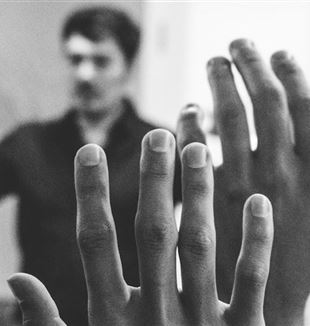
The continuous task of being true
More than forty years of teaching celebrated with colleagues and with a letter to his students. A story made up of faces, moments, even mistakes. And a gaze that has changed over time.The weekend before the end-of-year exams. A group of colleagues prepared an aperitif for me and my colleague from Mathematics, who is about to retire. Shortly before dessert, I took to the floor, wanting to express what has been in my heart for some time now and my gratitude to each of them for that gesture and what it was a sign of. I wanted to communicate what had moved me in more than forty years of teaching and, above all, my gratitude, upon my return after years of mission in Peru, for what had changed in me and with them in recent years. They have been difficult years but at the same time full of enthusiasm, esteem and unexpected fruits, full of commitment. Thus, confusedly, in an impromptu farewell, I wanted to tell them from whom I had learned and what had matured over time.
When I took my first substitute teaching post it was the days of Aldo Moro's kidnapping, March 1978. Many of my colleagues had not yet been born, but I wanted to use a dramatic image to evoke the changes brought about in the world and in education over these decades. I also wanted to point out that we have a continuous task before us, that of rebuilding humanity, our own, and that of being true.
I went on speaking freely; my memory was full of faces, moments, words heard, even mistakes made. But the prevailing sentiment was this: in almost 42 years I have learned to look at my pupils; my gaze towards them and the world has changed, amazed by that ‘Eternal mystery of our being,’ both me and them.
Read also – Belgium: “my hope, within the yes of a friend”
During my last lesson, I gave each student a letter in which, among other things, I wrote: "As I end my teaching career, you are nearing the end of high school and then university and life, family and work commitments. I would like, first of all, to remember the people from whom I have learned and for whom I decided to devote myself to teaching: my mother, a passionate teacher of Classical Literature and, from my university years, a great teacher, a priest who taught me to look at things by preserving reason. From him I learned what it means to always be young. He wrote: ‘Youth is an attitude of the heart. We are young when we do not settle down, but await reality with an eagerness to learn what it suggests about our destiny, so that reality prompts those questions that constitute the human heart and that are a reflection of destiny in us, and that await an answer that concerns the whole of life.’ I wish for you never to be at peace, ‘never to be satisfied by earthly things,’ as Leopardi would say. I therefore also wish you this passion to live in search of reason, the meaning of everything, to 'follow virtue and knowledge', as Ulysses says in Dante's Inferno."
Giancorrado, Corsico, Italy